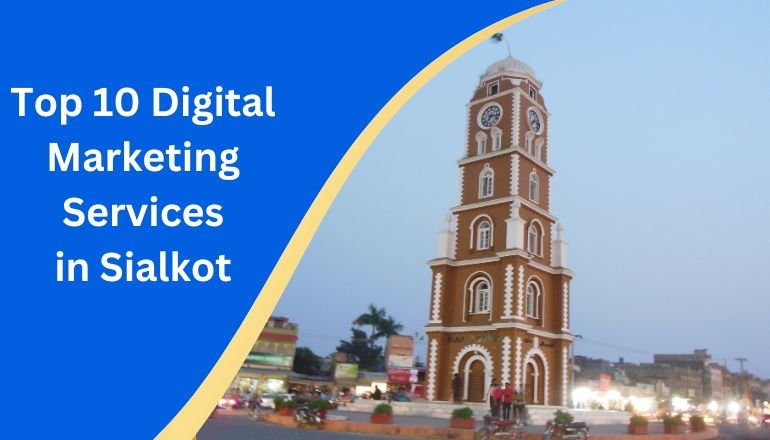As more consumers turn to the internet for local services and products, the importance of Local SEO cannot be overstated. With an estimated 46% of all Google searches looking for local information, keyword research for Local SEO is a vital step for any business aiming to attract local customers. Effective keyword research helps businesses improve online visibility, connect with target audiences, and drive foot traffic or online conversions. At Best Digital Marketing Agency, we specialize in tailored strategies that boost local businesses through targeted Local SEO efforts, enabling brands to stand out in a competitive marketplace.
Introduction to Keyword Research for Local SEO
Keyword research for Local SEO involves identifying the search terms your potential customers use when looking for products or services in your area. By understanding these keywords, businesses can tailor their website content, local listings, and ad campaigns to meet user intent. A strong foundation in keyword research for Local SEO directly impacts a company’s local search rankings, whether that’s on Google Maps, local search results, or mobile-first queries.
The importance of keyword research for Local SEO lies in:
- Targeting local users effectively through geo-specific search queries.
- Improving search engine visibility and ranking on local search results.
- Enhancing conversion rates by aligning your website with local search intent.
Related terms such as “targeted marketing,” “local search results,” and “geo-specific queries” help ensure content is aligned with local SEO best practices.
Why Keyword Research for Local SEO Matters
Conducting keyword research for Local SEO offers tangible benefits for businesses aiming to attract geographically targeted customers. Some reasons why it’s crucial:
- Increased Local Visibility: By using the right local search terms, businesses ensure they appear in local search results, driving more traffic from customers actively looking for services in their area.
- Better Customer Targeting: Keyword research reveals specific, often long-tail, phrases users are typing into search engines, which helps businesses tailor their content to meet unique local needs.
- Improved Conversions: Optimizing for local keywords leads to higher-quality traffic—users who are already near your physical store or are looking for services you provide.
- Enhanced ROI: As more people perform local searches via mobile devices, investing in local keyword research can lead to higher returns on paid ads, boosting the effectiveness of Google Ads Campaigns or PPC Advertising.
Keywords like “conversion rate optimization (CRO)” and “audience targeting” enhance strategies designed to drive measurable business outcomes.
Key Components of Keyword Research for Local SEO
To conduct effective keyword research for Local SEO, businesses should consider several key components:
- Location-Specific Keywords: Identify terms including location modifiers such as city names, neighborhoods, or landmarks (e.g., “best pizza in Manhattan” or “plumber near me”).
- Google My Business Optimization: Ensure your business information is consistent and optimized for local searches using the keywords you identified in the GMB profile.
- Local Intent Keywords: Look for keywords related to local events, activities, or services, such as “24-hour locksmith in [City]” or “top-rated lawyer in [Location].”
- Competitor Analysis: Investigate the keywords your competitors are ranking for in local search results and adapt your strategy.
By leveraging tools like Google’s Keyword Planner, SEMrush, and Ahrefs, you can gain critical insights into local keywords and opportunities for content optimization.
Best Practices for Local SEO Keyword Research
To conduct successful keyword research for local SEO, follow these best practices:
- Focus on Long-Tail Keywords: Long-tail keywords, which often reflect user-specific intent, perform well in local search. For instance, “affordable web design services in [City]” or “personal injury lawyers in [City] with free consultation.”
- Use Google Autocomplete and Related Searches: Explore location-based suggestions via Google’s search bar, which auto-generates popular local queries, and track mobile-first queries for local searches.
- Leverage Location-Based Content: Once you identify high-performing local keywords, incorporate them naturally into your website content, blogs, and landing pages.
- Optimize for Voice Search: With the rise of mobile devices and virtual assistants, optimizing for voice search with conversational phrases (e.g., “where’s a good sushi restaurant near me?”) is becoming more important.
- Monitor Search Trends: Stay up to date with changes in search trends and how local users might shift their queries as new interests, locations, or seasons arise.
Implementing these strategies can improve your search engine visibility, enhance local search engine optimization, and contribute to website traffic growth.
Common Mistakes to Avoid in Local SEO Keyword Research
Avoid these common pitfalls when conducting keyword research for Local SEO:
- Neglecting Mobile Search Behavior: Failing to optimize for mobile devices can be detrimental, especially since most local searches occur via smartphones.
- Overlooking Local Ranking Factors: Keywords alone aren’t enough—businesses should also optimize other ranking factors like backlinks, reviews, and NAP consistency across local listings (Name, Address, Phone number).
- Keyword Stuffing: Avoid cramming keywords into your content unnaturally. Google values a user-friendly, authentic experience over keyword density.
- Targeting Broad Keywords: While generic terms like “plumber” may seem appealing, they often lack specificity. Focus on hyper-local, niche keywords instead.
By avoiding these mistakes, you ensure ad relevance and better audience targeting throughout your Local SEO campaign.
How Local SEO Keyword Research Fits Into a Comprehensive Digital Marketing Strategy
Effective keyword research for Local SEO integrates seamlessly with broader digital marketing strategies. Here’s how:
- PPC and Local SEO Synergy: Keywords uncovered in Local SEO research can be leveraged for paid ads, increasing ad relevance and driving better CTR (click-through rates).
- Content Marketing and Local SEO: By using local keywords, you can produce blog posts and content that address local issues, creating a strong online presence.
- Social Media and Local SEO: Optimizing your social media content with local keywords helps align your social marketing with search visibility.
An integrated marketing approach will ensure you boost your local presence while building your broader brand authority, generating a better ROI through cross-platform campaigns.
Conclusion: Key Takeaways
Effective keyword research for local SEO is an essential step to achieving higher rankings in local search results, attracting nearby customers, and driving conversions. By identifying location-specific keywords, optimizing mobile search, and using long-tail strategies, businesses can position themselves for local success.
At Best Digital Marketing Agency, we can help you navigate local keyword research and develop strategies to enhance your local presence, driving traffic and growing your business. Contact Best Digital Marketing Agency today to take your local SEO efforts to the next level.













